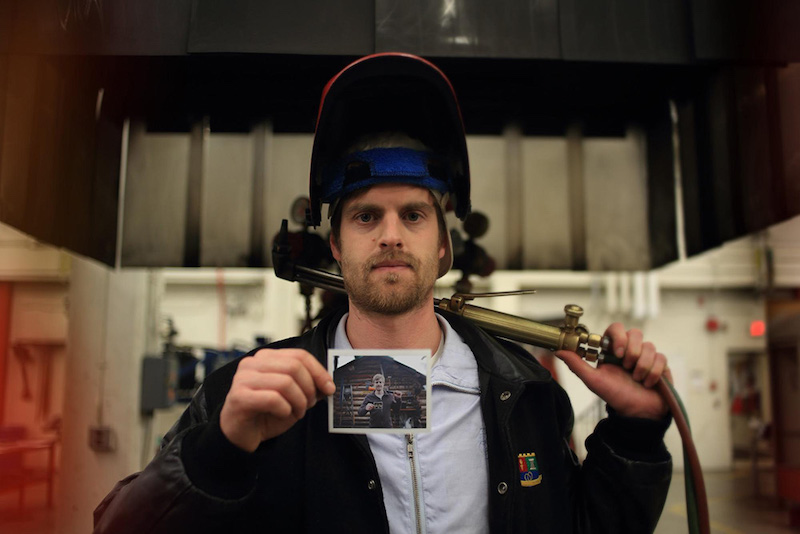The federal government should do everything possible to help oil and gas workers clobbered by the economic meltdown caused by coronavirus. But bailing out fossil fuel companies unable to survive one of the worst oil price drops in the industry’s history is a terrible idea. That is the reaction of many climate advocates in Canada upon hearing the news that Justin Trudeau’s federal government is preparing a multi-billion aid package to Alberta’s oil patch.
“What the coronavirus crisis has made very real is that even in a country like Canada with a reasonable social safety net workers are getting massacred and it’s going to keep happening and we need to come up with a way to fix that problem full stop,” Jessica Green, an associate professor of political science at the University of Toronto whose work focuses on the politics of climate change, told The Tyee. “Resuscitating a dying industry is not fixing the problem.”
Citing anonymous federal and Alberta government insiders, the Globe and Mail reported on Thursday that $15 billion in aid could be coming to the oil and gas industry from Ottawa.
Though finer details are expected to be made public early next week, the package may include the federal government buying shares in tanking oil and gas companies, similar to actions the U.S. government took in the aftermath of the 2008 financial crisis.
The reaction online among climate advocates was swift and critical. “Diverting desperately needed public funds to subsidize a poorly-managed sunset industry during a pandemic is absolutely unconscionable,” tweeted Debra Davidson, a professor of environmental sociology at the University of Alberta. “If there was ever a time to #divest #fossilfuels it is now.”
“Are you kidding me?” wrote NDP Churchill-Keewatinook Aski MP Niki Ashton. “Trudeau’s Government is going to use this time of crisis to bail out oil and gas companies. No to corporate bailouts.”
“If ever there were a political opportunity to get out of the fossil fuel business, it is now,” tweeted McGill University assistant professor in political science Hamish van der Ven.
The Globe and Mail reported that a letter signed by 65 industry executives urged Prime Minister Justin Trudeau to set up something like the U.S. Troubled Asset Relief Program and use it to buy distressed assets. The industry also is asking for the government to suspend the carbon tax and other taxes.
“Our companies collectively represent over 100,000 working Canadians,” the executives wrote. They called for "all levels of government to work together toward one goal: no Canadian, household, business or organization is left worse off than where they were when this crisis began.”
“Workers, yes. But not a penny better land in the offshore accounts of any of those Calgary Flames-owning cretins,” tweeted Dogwood BC communications director Kai Nagata, apparently referring to oilsands billionaires like Norman Murray Edwards.
An undisclosed portion of the bailout package could go towards paying unemployed oil and gas workers to clean up abandoned oil wells.
When The Tyee reported last summer on the steps Alberta could take to transition away from fossil fuels while still ensuring a healthy economy, experts cited this as one of the most promising solutions.
“We’re looking at all options – including helping maintain jobs in the industry by enabling workers to put their skills to use remediating the environmental liabilities associated with orphan wells,” a spokesperson for Natural Resources Minister Seamus O’Regan told The Globe.
Green at the University of Toronto said these are the types of actions the federal government should be pursing in a time of unprecedented crisis. “Look, you’re going to pay workers to clean up used oil wells? Great, that’s a good use of money,” she said. “But if you’re just going to keep these [oil] companies afloat you’re just kicking the can down the road and possibly locking in more fossil fuel infrastructure in the future.”
The problems affecting Canada’s oil and gas industry have been growing for years and the market havoc wreaked by coronavirus is accelerating them. When Teck Resources abruptly withdrew its application for a massive oilsands mine last month it cited weak oil patch economics as the reason.
Experts such as Green agree that shifting a fossil-fuel-dependant economy like Alberta’s to more diversified and sustainable activities is no easy task, but that Covid-19 should be forcing us to think about the better future we want to build. “What is clear is that propping up a dying industry is not a good idea,” she said. ![]()
Read more: Energy, Coronavirus, Labour + Industry, Environment
















Tyee Commenting Guidelines
Comments that violate guidelines risk being deleted, and violations may result in a temporary or permanent user ban. Maintain the spirit of good conversation to stay in the discussion.
*Please note The Tyee is not a forum for spreading misinformation about COVID-19, denying its existence or minimizing its risk to public health.
Do:
Do not: